The Master Chef: Lou Eccleston Aims to Transform TMX Into a Tech Solutions Provider
Lou Eccleston talks about how his previous roles at Thomson Financial and McGraw Hill Financial have prepared him for taking on CEO duties at TMX Group.
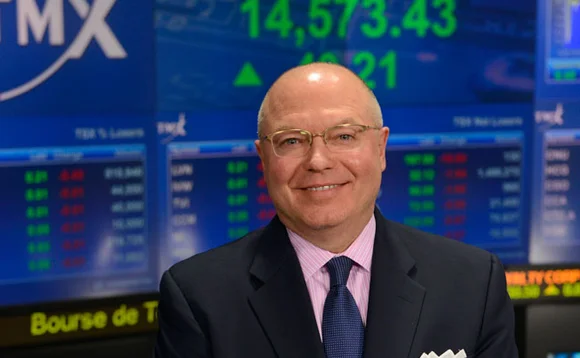
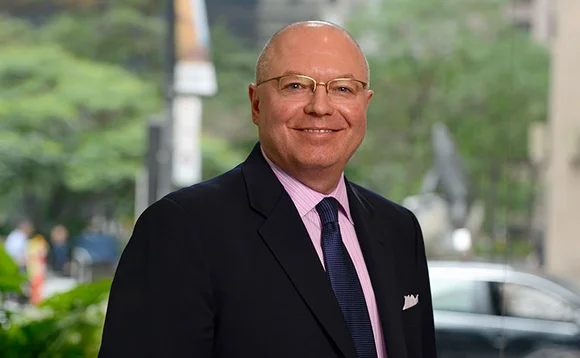
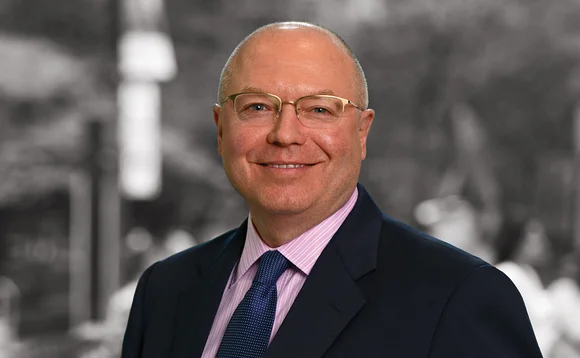
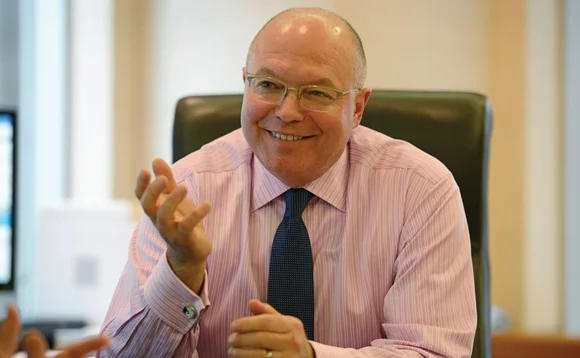
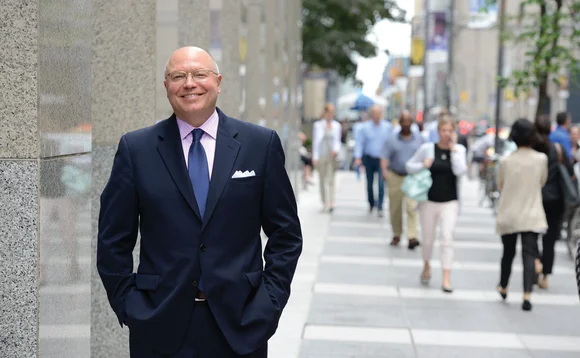
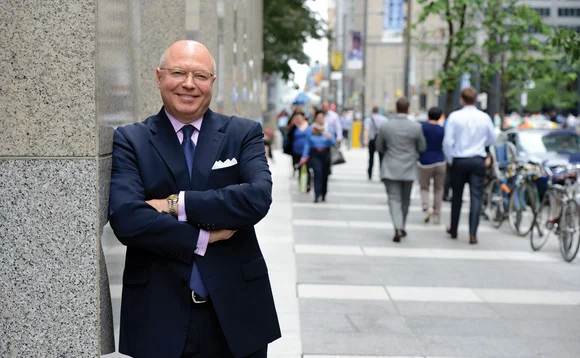
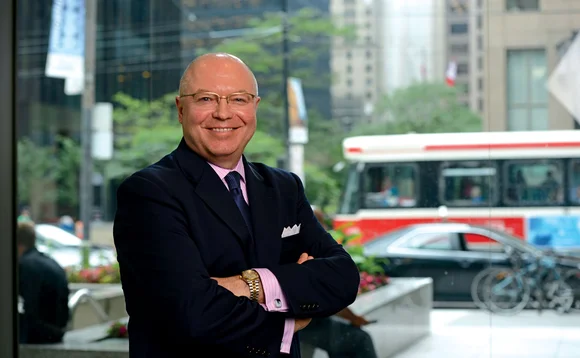
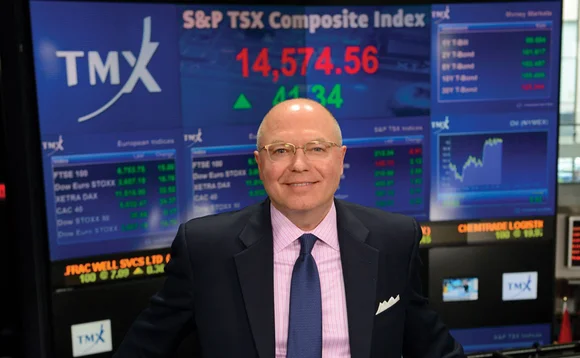
Lou Eccleston has plenty of reasons why he loves to cook.
There is the food itself, which he grew to have a deep appreciation for thanks largely to a mother who, like most Italian women, was more than happy to feed her son.
Then there is what food represents. As he grew older, and started a family of his own, cooking was about more than just eating. Eccleston enjoyed sitting down together for a meal with his loved ones. He credits the time his family set aside to eat dinner together as one of the reasons why his wife (Joan Albanese) and four children (Krista, Lauren, Drew and Emma) still remain so close to this day.
There is also the actual process of cooking. The creativity involved in combining several different ingredients into a single dish is something Eccleston finds pleasure in. It is the ability to make something out of seemingly nothing.
It is like when he brought together two of his favorite ingredients (pistachios and veal cutlets) to make what he considers one of his best meals: pistachio-crusted veal cutlets. The recipe has been published twice-in the Italian cooking magazine La Cucina Italiana and in New Jersey radio personality Big Joe Henry's cookbook Big Joe Henry's Big Jersey Cookbook.
"To create a portfolio that has more value than just individual companies, you have to have an underlying technology infrastructure. Without that architecture and infrastructure that goes across all the businesses, you're operating siloes," Lou Eccleston, TMX Group CEO
"I love pistachio, and I love veal cutlet. Why not together?" Eccleston explains. "Normal bread coating is kind of boring sometimes."
And finally, Eccleston says cooking serves as an outlet. It's a creative diversion away from his work, allowing him to bring together his family and relax.
What's the Difference?
But how different is cooking from what Eccleston has been doing the majority of his career? Professionally, he is a chef in his own right when it comes to his work in financial services during the past few decades.
While Eccleston hasn't been feeding his famed pistachio-crusted veal cutlets to bank and asset management employees, he has led the strategic realignment of the past three companies he has worked at, a task that mirrors that of a cook. Reorganizing a company's portfolio of assets to make its brand more valuable isn't that different from crafting a recipe.
"Bringing it together, building layers and producing an outcome that is better together than by itself," says Eccleston of the similarities between cooking and his job.
Any good chef must have a key ingredient, and Eccleston is no different. During his time at Thomson Financial, McGraw Hill Financial and now TMX Group, where he was named CEO in November 2014, the one constant throughout the reorganizations has been technology.
"You can't avoid technology-you either get consumed by it or learn how to leverage it, because it drives everything," Eccleston says. "If you want to innovate, if you want to build new products and constantly grow your business, you've got to be technology driven."
Appreciating Tech
Eccleston's passion for technology doesn't come from a background in coding or developing. Born and raised in Kingston, N.Y., his interest was always in economics. He studied it at Drew University, followed by a stint at La Salle University where he obtained a master's in business administration with a specialization in finance. It wasn't until he arrived at Bloomberg in 1988 where his appreciation for IT arose.
While at Moody's, Eccleston was tasked with coming up with an electronic outlet for credit research. Bloomberg had recently released a similar product, so Eccleston put in a call to Mike Bloomberg to discuss electronic research.
One thing led to another, and Eccleston landed at Bloomberg, where he would spend the next 14 years working with software developers on new solutions. Bloomberg served as a crash course in technology. Eccleston says software is behind the firm's constant drive to continue to release new solutions for its clients.
"It was always about creating products, whether it was data, trading, portfolio management or anything else," Eccleston says. "It was always about creating products through software and leveraging technology."
Launchpad
Bloomberg served as a launchpad into the world of technology for Eccleston, but it was at Thomson Financial, which he joined in 2002, that he started to learn the ins and outs of strategic realignments. At Thomson Financial he inherited several companies that were part of the firm's portfolio via acquisitions. Eccleston was tasked with bringing firms like AutEx and ILX Systems together under the Thomson brand.
Pulling from his experiences at Bloomberg, Eccleston realized the key to integrating the companies and making the entire package as valuable as possible was around technology.
"To create a portfolio that has more value than just individual companies, you have to have an underlying technology infrastructure," Eccleston says. "Without that architecture and infrastructure that goes across all the businesses, you're operating siloes."
It was the same situation at McGraw Hill, where Eccleston landed in 2008 and initially started at Standard and Poor's. Eccleston helped with the creation of S&P Capital IQ and S&P Dow Jones Indices. As was the case with Thomson Financial, Eccleston says the glue to the reorganization was in its technology.
"You build a house on a foundation. You've got to have that infrastructure. You have to have the data layer, which drives your ability to produce products," Eccleston says. "It drives your ability to do research and development. It attracts talented people who want to be involved in a technology-driven company."
No Easy Task
And so once again Eccleston is staring down the barrel of a massive strategic realignment. However, this one might be his biggest challenge yet. While Thomson Financial and McGraw Hill are certainly important to the markets in their own right, TMX, which includes the Toronto Stock Exchange (TSX), the Montreal Exchange and the Canadian Depository for Securities (CDS), is a pillar of Canada's economy.
Eccleston is also the CEO, a position he's only held once before, a one-year stint at software solutions provider Pivot, and dealing in a market (Canada) that he hasn't worked in. In addition to all that, this is his first role at an exchange.
And yet, he seems unperturbed by it all. He's served as president at S&P Capital IQ and chairman of the board at S&P Dow Jones Indices, so dealing with investors and a board of directors is nothing new. Since he isn't involved directly in trading, the only hurdle working at a firm that runs exchanges has been understanding some of the intricacies of the different markets, which hasn't taken long.
As for adjusting to a new region, in true Canadian fashion, Eccleston found them to be friendly. He says the amount of dialogue between leaders in the markets and the regulators is better than he's seen anywhere else in the world.
At its core, despite all the differences, Eccleston's job at TMX is the same one he's had everywhere else he has been during the past 13 years: to execute a transformation. Just like making a meal, Eccleston is responsible for finding the right combination of ingredients-technology, talent and culture-to create something successful. It's a role he relishes.
"You have to marry all those things and make sure you have the right people who are all marching in the same direction and they understand what the company needs to do," Eccleston says. "To me, that transformation and evolution has always been what I was most excited about."
Technology-driven Solutions
So what exactly does Eccleston have planned for this third go-round? TMX's transformation is based on investment in five pillars: capital formation, derivatives, market insights, market solutions and efficient markets. The breakdown came after a review of the organization that spanned market gaps, past return on investments dating back four years, and TMX's structure and capabilities.
The plan that Eccleston developed is a rather drastic change in strategy for the firm, which had previously been pursuing a broad diversification approach. For Eccleston, it was important to get people to realize that not every company under the TMX umbrella would be treated in the same way. Eccleston cites Canada's proportionate-based regulation (i.e. regulations that are adjustable depending on the company) and says a similar strategy needs to be implemented at TMX.
"When I came in the door every business was treated equally. They all had to grow. Well they're not," Eccleston says. "I think about capabilities. Not every business has to be a $50 growth stock, but TMX has to be a $50 growth stock."
Even the pillars themselves aren't equal. A case in point is "efficient markets." While TSX and CDS are both important to TMX, they aren't growth businesses, according to Eccleston.
"They're critical and profitable, and they help drive growth in other businesses. You have to invest in it, but it's not going to get you a lot of growth," Eccleston says. "But it does drive growth across your other markets, and it's a critical service for your clients."
Another Story
The process of getting companies to TSX is another story, as TSX Venture Exchange, which has helped more than 600 companies move on to TSX, is a big area of potential growth, according to Eccleston. While resource-driven companies have always found their way to TSX Venture Exchange, Eccleston says the goal is to tap into digital entrepreneurs.
Eccleston also has plans for adding applications on top of data, something TMX has never done. The concept is a TMX application store where clients can use it with TMX data, their proprietary data, or other sources and distribute it via a third-party vendor.
A series of applications are already in development to help clients understand trade flow and different trading patterns by looking at trends across the markets. The idea is to help customers understand different types of order flow.
All of the opportunities for growth come down to one single thing, however: TMX's evolution is about being considered more than just the home of Canada's exchanges.
"We've got to be a technology-driven solutions company that happens to own exchanges. You can't just be an exchange, because otherwise you're going to get disrupted by all the new technologies," Eccleston says.
"I think we've got to be a really digital enterprise. I think we've got to run financial products, services and markets as you see with any new internet-based company using hyperscale, secure cloud-based services, mobile devices, and being able to do things quickly and nimbly, and not having to fill rooms with servers and hardware."
Unwavering
Eccleston shows signs of confidence throughout the entire description of TMX's plan. He is a man who has been here before and understands exactly what needs to be done.
There are no awkward pauses or unsure answers. His belief in the strategy is unwavering. There is, however, an acute awareness of the magnitude of overhauling such a key component of a country's economy.
"It's only pressure if you don't do well, but it absolutely is a factor. I have never been in an organization that played this key of a role in public mandate and fiduciary responsibility," Eccleston says.
"You have to understand that from day one, and as you make your investment decisions you have to make sure you don't forget that, because you're not just one thing- we're many things, and we need to be that. We need to be a company with that kind of fiduciary responsibility that also is a growth company."
With a strategy in place, Eccleston's role shifts to the management of the 1,400 people responsible for implementing his vision. Eccleston knows all too well that his destiny now lies in motivating those at TMX to buy into the strategic realignment.
Technology may be the underlying ingredient that brings TMX together, but the secret ingredient, the one that can make or break the dish, is the people.
"You can come up with a plan, but the people are the ones who execute it,"Eccleston says. "One of the funny things is that the more complicated technology becomes, the more you need people who understand it and who can execute against it. People still run the business."
Fundamental Data
Name: Lou Eccleston
Birthplace: Kingston, N.Y.
Age: 57
Title: CEO of TMX Group
Degree/university: BA in economics from Drew University, MBA in finance from La Salle University
Personal Hobbies: Family, cooking and golf
Only users who have a paid subscription or are part of a corporate subscription are able to print or copy content.
To access these options, along with all other subscription benefits, please contact info@waterstechnology.com or view our subscription options here: https://subscriptions.waterstechnology.com/subscribe
You are currently unable to print this content. Please contact info@waterstechnology.com to find out more.
You are currently unable to copy this content. Please contact info@waterstechnology.com to find out more.
Copyright Infopro Digital Limited. All rights reserved.
As outlined in our terms and conditions, https://www.infopro-digital.com/terms-and-conditions/subscriptions/ (point 2.4), printing is limited to a single copy.
If you would like to purchase additional rights please email info@waterstechnology.com
Copyright Infopro Digital Limited. All rights reserved.
You may share this content using our article tools. As outlined in our terms and conditions, https://www.infopro-digital.com/terms-and-conditions/subscriptions/ (clause 2.4), an Authorised User may only make one copy of the materials for their own personal use. You must also comply with the restrictions in clause 2.5.
If you would like to purchase additional rights please email info@waterstechnology.com
More on Emerging Technologies
24X files for exemption from SIP rule to take part in overnight trading
The exchange, which began operating in mid-October last year, plans to offer the overnight session in the second half of 2026.
HSBC gives 31,000 engineers an AI coding assistant
CEO Georges Elhedery said the bank is re-engineering its end-to-end processes and enhancing customer experiences with new AI tools.
Bloomberg Terminal’s agentic play shows rapid change in trading tech
Waters Wrap: The data giant’s conversational AI interface might seem novel, but others say having one is becoming a bare minimum in the world of trading technology.
AllianceBernstein enlists SimCorp, BMLL and Features Analytics team up, and more
The Waters Cooler: Mondrian chooses FundGuard to tool up, prediction markets entice options traders, and Synechron and Cognition announce an AI engineering agreement in this week’s news roundup.
CompatibL’s unique AI strategy pays dividends
CompatibL’s unique approach to AI and how its research around cognitive bias and behavioral psychology have improved the reliability of its AI-based applications.
Market participants voice concerns as landmark EU AI Act deadline approaches
Come August, the EU’s AI Act will start to sink its teeth into Europe. Despite the short window, financial firms are still wondering how best to comply.
Ram AI’s quest to build an agentic multi-strat
The Swiss fund already runs an artificial intelligence model factory and a team of agentic credit analysts.
Fidelity expands open-source ambitions as attitudes and key players shift
Waters Wrap: Fidelity Investments is deepening its partnership with Finos, which Anthony says hints at wider changes in the world of tech development.








